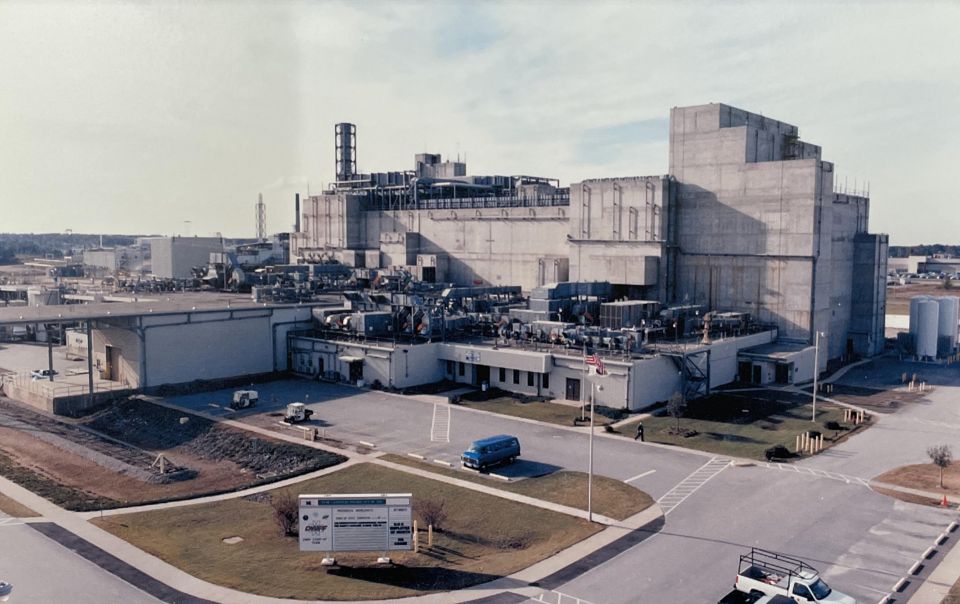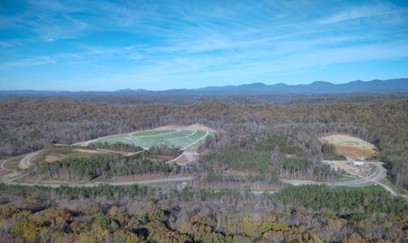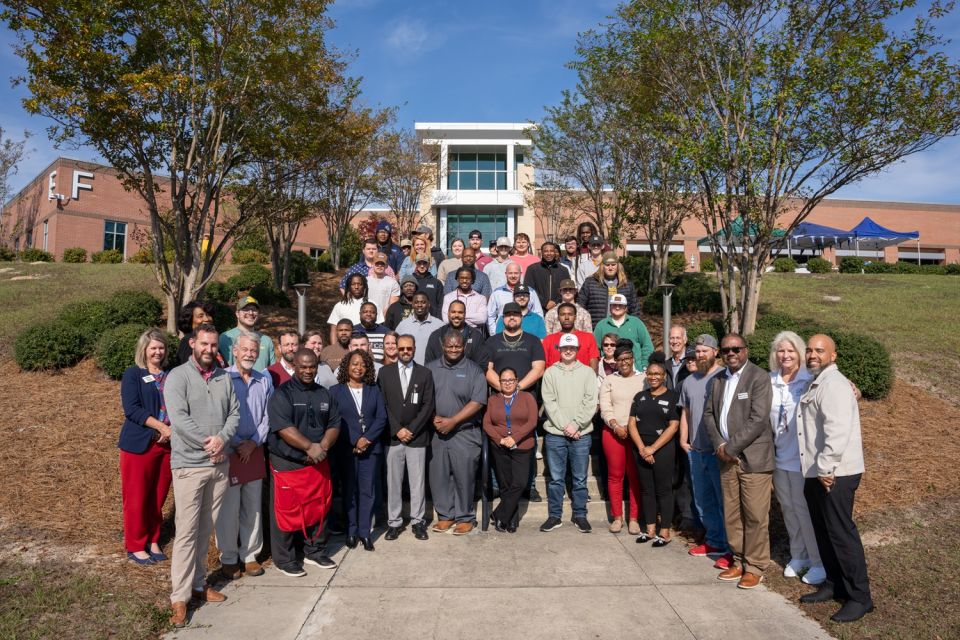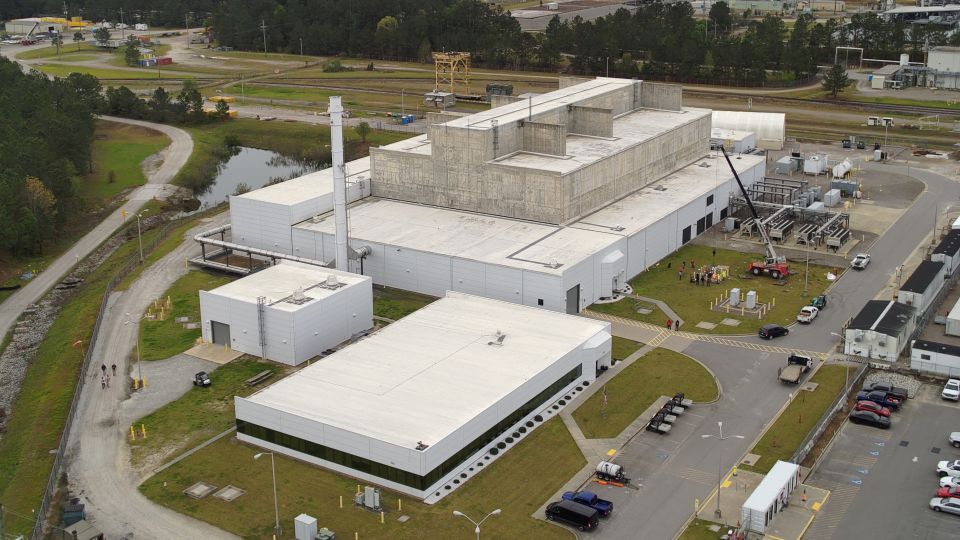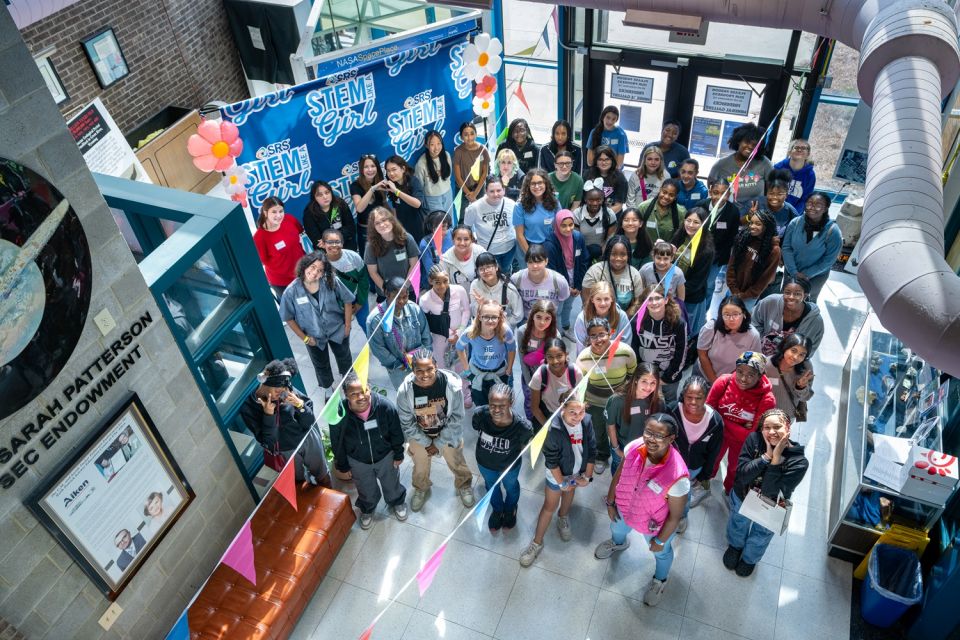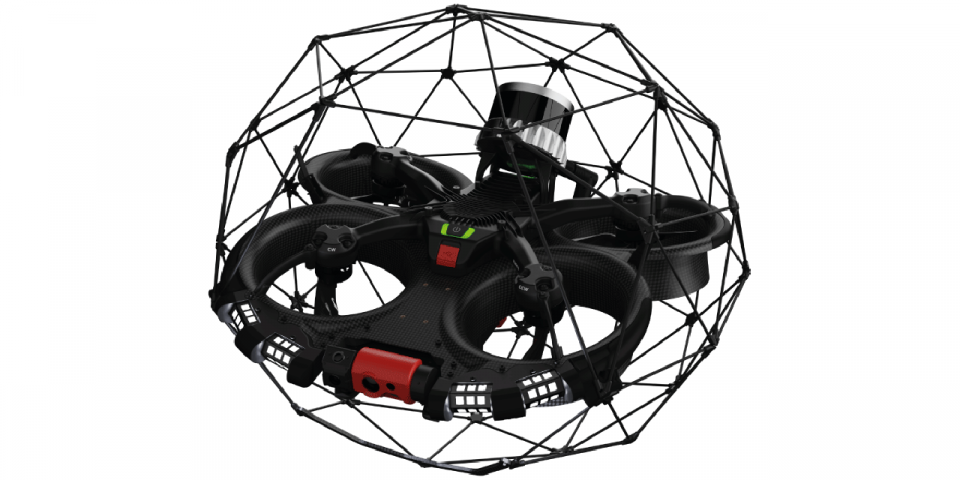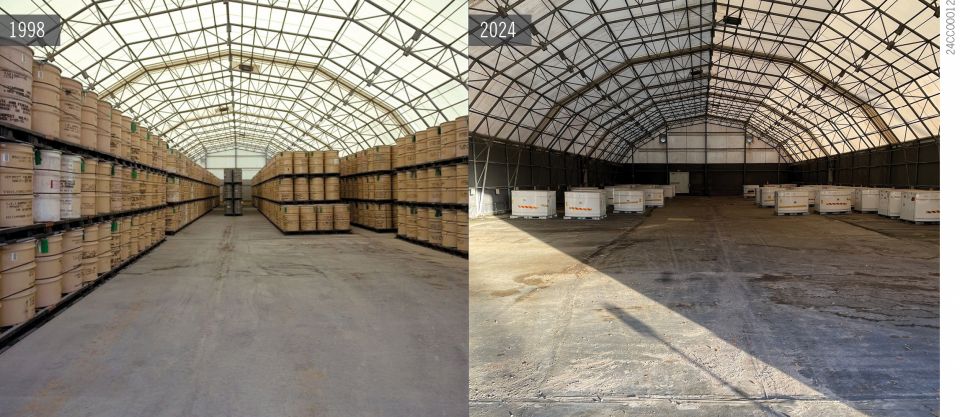When complete, SDU 10 will be the fifth giant unit built at the site that can hold up to 33 million gallons of saltstone. More than 20,000 cubic yards of concrete are needed to build each SDU, using about 700,000 total labor hours.
Savannah River Mission Completion (SRMC), the site’s liquid waste contractor for DOE-EM, manages the construction and operation of the SDUs. Subcontractor DN Tanks completed the concrete construction, and subcontractor Quality Plus Services completed the site preparation for the project. The concrete work came just weeks after SRMC received authorization to operate SDU 9.
The process: The SDUs are the end of the site’s salt waste processing path. The Salt Waste Processing Facility (SWPF) separates and concentrates the highly radioactive waste from the less radioactive salt waste, producing a decontaminated salt solution that is sent to the Saltstone Production Facility. There, the solution is mixed with dry materials to make a cement-like grout. The grout is then pumped into the SDUs, where it solidifies into a monolithic, nonhazardous form.
These large SDUs are designed to support the increased material from the SWPF. According to DOE-EM, the new SDUs will result in more than $500 million in cost savings over the life of the liquid waste program, because they require less infrastructure and materials than the 80 smaller SDUs that were previously planned for the site.
Up next: Next on the to-do list for SDU 10 is to wrap it with 341 miles of cable around the exterior walls. The cable ensures the structural integrity of the walls while grout is being added, before the material within turns into hardened saltstone.
Work is also underway for the final pair of SDUs—11 and 12—adjacent to SDU 10. Mud mat installation for SDU 11 is scheduled to start later this summer, while the mud mat addition for SDU 12 is scheduled to begin in the fall. The mud mats provide a solid surface for the SDU concrete floor.
Quotable: “Since the first mega unit, SDU 6, was built in 2017, EM has not slowed down on construction of these critical structures,” said Jim Folk, DOE-Savannah River assistant manager for waste disposition. “These SDUs ensure that the decontaminated salt solution will have a place to be safely and permanently disposed of. Completion of the concrete placements for SDU 10 is another step forward on the mission to clean up the legacy radioactive waste at the Savannah River Site.”


